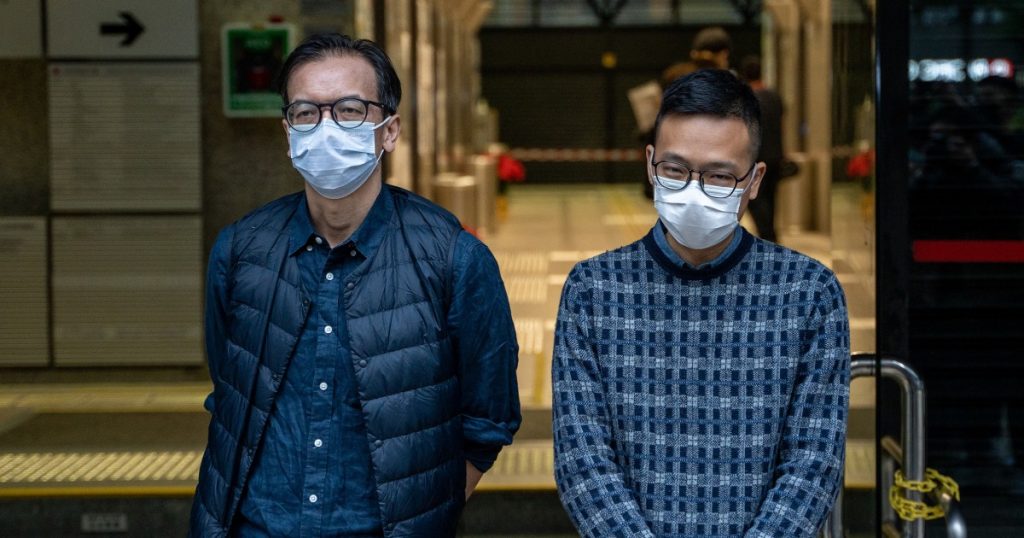The verdict of a sedition case against two journalists, Chung Pui-kuen and Patrick Lam, who led a defunct pro-democracy newspaper in Hong Kong, is expected on Thursday. The trial is widely viewed as a test of press freedom in the Chinese territory as authorities have resurrected the sedition law as part of a crackdown on dissent following mass antigovernment protests in 2019. This is the first time the law has been used against media since Hong Kong returned to Chinese rule in 1997, under the condition that civil liberties, including press freedom, be preserved for 50 years. Chung and Lam face up to two years in prison and a fine of 5,000 Hong Kong dollars if found guilty.
Stand News, the newspaper led by the journalists, has been shut down since December 2021 when its office was raided by national security police, and its assets were frozen. The arrests of Chung, Lam, and five others were criticized by Western officials, including Secretary of State Antony Blinken. Stand News and other pro-democracy news outlets have faced pressure since the imposition of a national security law in 2020 in response to the 2019 protests. Many prominent pro-democracy figures have been arrested under the law, while civil society groups have shut down due to the uncertain environment. This decline in press freedom in Hong Kong is reflected in rankings such as the World Press Freedom Index, where Hong Kong now ranks 135th out of 180 countries and territories.
The case against Stand News is based on 17 articles published from July 2020 to December 2021 that prosecutors describe as seditious, inciting hatred or contempt against the Chinese central government, the Hong Kong government, or the judiciary. The articles include opinion pieces criticizing the national security law, interviews with former pro-democracy lawmakers in self-exile, and profiles of pro-democracy candidates awaiting sentencing in a national security case. Lawyers for Chung and Lam argue that they were legitimate journalists reporting on issues covered by other media outlets in Hong Kong. The crackdown on pro-democracy news outlets, including Apple Daily and Citizen News, has led to concerns about press freedom and the impact of new national security legislation, known as Article 23, which has been criticized for its vaguely worded provisions.
The Hong Kong government maintains that freedom of the press and speech are protected under the city’s mini-constitution and Bill of Rights but are not absolute. Stand News, founded in 2014, gained recognition in 2019 for its coverage of the protests that year. Despite facing criticism from government officials, Hong Kong residents rated it among the city’s most credible news outlets in a survey conducted by researchers at the Chinese University of Hong Kong. The trial of Chung and Lam, almost two years in the making, has been postponed multiple times, with the journalists pleading not guilty to conspiracy to publish seditious materials. The verdict will be a significant moment for press freedom in Hong Kong and a test of the territory’s commitment to civil liberties in the face of increasing government crackdowns on dissent.
The closure of pro-democracy news outlets and the arrest of journalists and activists under national security laws have raised concerns about the state of press freedom in Hong Kong. With the decline in rankings on press freedom indices and the closure of civil society groups citing the uncertain environment, the verdict in the sedition case against the Stand News journalists will have implications for media freedom in the Chinese territory. The use of sedition laws against journalists reporting on issues critical of the government raises questions about the limits of free speech and press freedom in Hong Kong and the broader implications for civil liberties in the region.


